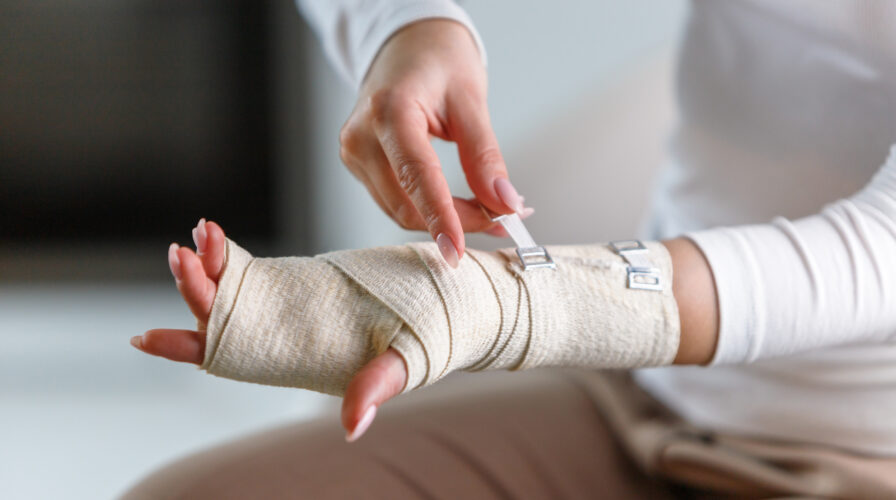
Recovering from an orthopedic injury
All orthopedic injuries result from damage to the musculoskeletal system and can impact bones, joints, and muscles. We treat patients recovering from medical procedures and surgeries, disordered musculosketal damage (such as tendinitis or arthritis), and trauma.
Though many patients with orthopedic injuries have difficulty with strength and mobility, balance, pain management, and endurance, every Reunion patient has unique treatment goals. That’s why we never take a one-size-fits-all approach. At Reunion, our interdisciplinary team will work together to create a care plan individualized to your needs, then walk alongside you during every step of the recovery journey.
Why Inpatient Rehabilitation?
If you or a loved one need support during recovery from an orthopedic injury, your doctor may recommend treatment in an inpatient rehabilitation hospital (or IRH) or a skilled nursing facility (or SNF). While both IRHs and SNFs provide patients with occupational, physical, and speech therapy, patients in skilled nursing facilities work with therapists for three to five hours a week, and patients in IRHs (such as Reunion), work with therapists for fifteen intensive hours each week.
Medical studies have shown that patients who recover in an IRH live longer and have fewer ER visits and hospitalizations than patients treated in an SNF. IRH patients also return to the community sooner than SNF patients. IRH patients with hip fractures, for example, are discharged 10 days earlier and are able to delay hospital readmission for two months longer than SNF patients recovering from hip fractures. Ultimately, these IRH patients also have a 14% lower mortality rate than SNF patients.
What to Expect in Inpatient Rehabilitation
If you choose to recover at a Reunion Rehabilitation Hospital, our team will provide you with two types of therapy: physical and occupational. During admission, they will conduct an evaluation of your current physical limitations and needs. The day after admission, you will begin 60-90 minute therapy sessions completing evidence-based techniques designed to improve your mobility.
Physical Therapy
During recovery from an orthopedic injury, you will use physical therapy to avoid re-injury while improving your strength, mobility, pain management, and endurance. Depending on the site of your injury, Reunion therapists may use an Omni Cycle—a stationary bike with motor-assist technology—to help you strengthen your legs or a pulley system to help you strengthen your upper body. Therapists may also use stretching, massage, and functional electrical stimulation therapy (or FES therapy) in conjunction with your physical therapy exercises.
Occupational Therapy
In occupational therapy, you will learn how to complete specific tasks that increase your independence. You may practice getting up from a chair, walking, and/or climbing stairs to train your muscles to complete activities of daily living. Additionally, occupational therapy exercises at Reunion often include gait training, in which you learn to walk on different surfaces using a partial weight-bearing treadmill (called the Biodex NxStep Unweighing System), and therapeutic stairs.
After Rehab
As you leave inpatient care for home or another treatment facility, it is important that you maintain a high continuity of care. Ligaments, cartilage, and bone heal more slowly than many other parts of the body, so it is important that you secure support for your ongoing healing. Meanwhile, it is important that you maintain physical activity and a healthy diet, and that you communicate your needs with loved ones to maintain your independence and self-confidence.
At Reunion, this is our ultimate treatment goal: we empower you to return to your community with as much independence as possible. After all, Reunion is both our namesake and our mission. We work side-by-side with you so you can return to the people and experiences that make your life meaningful.
Related Posts for
Orthopedic